
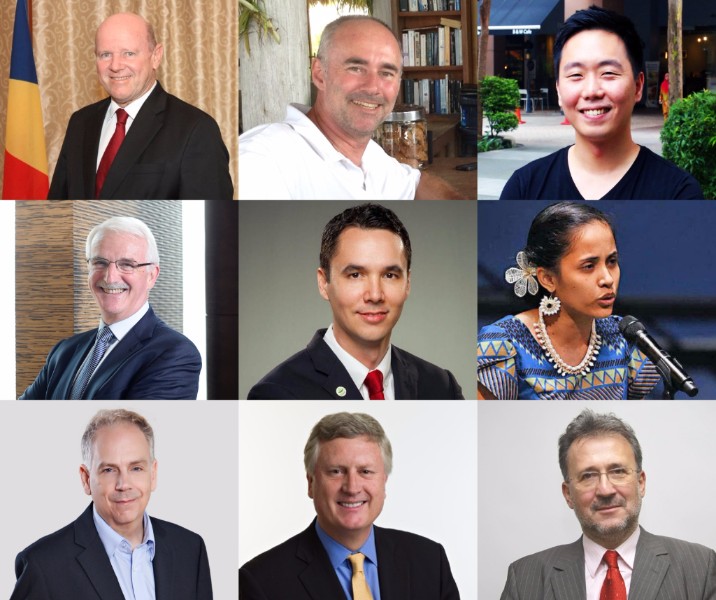
Ministerial Debate with the Private Sector on Pacific Island Tourism
The Pacific Asia Travel Association (PATA), in partnership with the World Tourism Organization (UNWTO), will hold the PATA/UNWTO Ministerial Debate on Pacific Island Tourism in Guam, USA on May 21, 2016. The event, generously hosted by the Guam Visitors Bureau (GVB), will be held at the Dusit Thani Guam Resort.
During the high-level debate, representatives from both the public and private sector will discuss how they can better align their actions towards a common set of goals and what an ideal island destination would be.
The first panel discussion on ‘Merging Motivations’ examines the different motivations and goals for the government and private sector. Speakers will analyse the areas where they overlap and discuss how to better align them to create a better pathway for growth.
The second panel session, ‘Cloud Nine – The Ideal Island Economy’, will delve into the notion of an ideal island economy, as the choices that shape the complete visitor economy of an island have a direct environmental and cultural impact upon the destination.
PATA CEO Mario Hardy said, “Preliminary figures from PATA indicate that 38 destinations in the Asia Pacific region welcomed 537.8 million international visitor arrivals in 2015 and that number is expected to reach more than 650 million by 2020. While this growth is surely impressive, it becomes imperative that both the public and private sector work together to ensure sustainable and responsible growth of the travel and tourism industry. The UNWTO/PATA Ministerial Debate is the perfect platform for bringing together both parties to work towards these goals.”
UNWTO Secretary-General, Taleb Rifai said, “Islands are home to some of the richest marine and land biodiversity on earth. Because of this, they are also a top destination for millions of tourists each year. The special geographical situation of islands makes them unique, but at the same time this poses a number of challenges for them including sustainability, climate change, air connectivity and positioning islands as top choice destinations in the minds of tourists. This Ministerial Debate will serve as an important preparatory exercise for the International Year of Sustainable Tourism for Development, 2017 adopted by the United Nations General Assembly”.
“This is the first time PATA and the United Nations World Tourism Organization are coming together to host this historic meeting in the Pacific. The discussion of important issues, such as global warming and sustainable tourism, are very relevant to the region as well as the global tourism industry,” said GVB Executive Director Nathan Denight. “Guam has been a regional hub in the Pacific for hundreds of years, and in this modern age, we are America in Asia and the perfect destination for high level meetings. We look forward to welcoming all the delegates and guest speakers to our island paradise.”
PATA and the UNWTO are especially honoured to have Marshallese poet, writer, artist and journalist Kathy Jetnil-Kijiner officially open the debate. Her poetry focuses on raising awareness on issues and threats faced by the people of the Marshall Islands. She has performed at the opening ceremony of the UN Climate Summit 2014 in New York and the 2015 United Nations Climate Change Conference (COP 21) in Paris.
Other confirmed speakers include Honourable Minister Alain St-Ange, Minister of Tourism and Culture, Seychelles; Andrew Dixon, Owner, Nikoi and Cempedak Islands; Derek Toh, Founder & CEO, WOBB; Gerald Lawless, Head of Tourism and Hospitality, Dubai Holding; Jon Nathan Denight, General Manager, Guam Visitors Bureau; Mark Schwab, CEO, Star Alliance; Morris Sim, Co-Founder & CEO, Circos Brand Karma; and Zoltan Somogyi, Executive Director for Programme and Coordination at the World Tourism Organization (UNWTO).
Delegates registering for the conference during the PATA Annual Summit 2016, hosted by GVB, enjoy complimentary access to the event. For more information, or to register for the event, please visit www.PATA.org/PAS-2016.
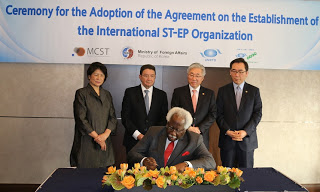
ST-EP International Organization: Zambia ambassador was at the signing ceremony
In 2013, the United Nations World Tourism Organization (UNTWO) General Assembly unanimously approved the proposal that the UNWTO ST-EP (Sustainable Tourism for Eliminating Poverty) Foundation to become an independent international organization headquartered in Seoul, Korea. The project was endorsed by the 156 UNWTO Member States including Zambia.
Ambassador Mumba Kapumpa, SC represented Zambia at the signing ceremony of the adoption of the agreement on the establishment of the ST-EP International Organization. The ceremony took place at the Lotte Hotel in Seoul on Monday, March 28, 2016. The ambassador was accompanied by First Secretary for Tourism, Nthemba Kamanga-Minja. Over 25 countries were represented at the ceremony.
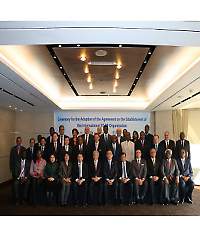
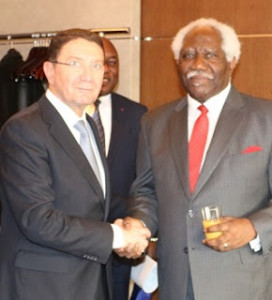 Following the resolutions, the UNWTO circulated the draft agreement on the establishment of the ST-EP International Organization prepared by the Government of Korea in December 2015 to be reviewed by Member States. Zambia has since then ratified the decision to join the new ST-EP Organization as a founding member.
Following the resolutions, the UNWTO circulated the draft agreement on the establishment of the ST-EP International Organization prepared by the Government of Korea in December 2015 to be reviewed by Member States. Zambia has since then ratified the decision to join the new ST-EP Organization as a founding member.
The ST-EP Organization will continue to encourage and advocate poverty alleviation through sustainable tourism development projects, targeting the most disadvantaged groups in society.
As of December 2013, 107 ST-EP projects have been approved for implantation in 40 countries. These projects include training of local tour guides and hotel employees; facilitating the involvement of local people in tourism development around natural and heritage sites; establishing business linkages between tourism enterprises; and providing business and financial services to small-, medium-, and community-based tourism enterprises.
In his congratulatory speech, Secretary General for the UNWTO, Dr. Taleb Rifai, said Korea is a success story by all means, and the establishment of the organization’s head office in Seoul is seen as another meaningful step for Korea’s contribution towards sustainable development.
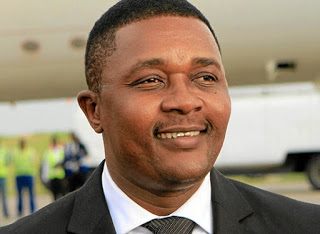
Zimbabwe moving to secure the next UNWTO Secretary General position
Zimbabwe’s minister of Tourism H.E. Walter Mzembi is trying to secure his move to become the next Secretary General of the UNWTO (United Nation World Tourism Organization)
The 7th meeting of the Southern African Development Community (SADC) of ministers responsible for Tourism was held in Gaborone, Botswana next week, March 14-15, 2016.
The Council endorsed the candidature and nomination of Hon. Walter Mzembi by the Government of Zimbabwe to the position of Secretary General of the United Nations World Tourism Organization (UNWTO), the SADC Council of Ministers said in a statement on Wednesday
Earlier this month at the ITB trade show in Berlin the replacement of Taleb Rifai , the current UNWTO Secretary General was discussed in many forums.
European, Asian and South American Ministers are yet to make up their minds on who they propose as the next secretary general.
Politically Zimbabwe has been controversial in many countries. Does this move indicate drastic changes in Zimbabwe’s policies?
Could Zimbabwe lead the United Nation’s Tourism body and keep in place the unity the UNWTO enjoyed thanks to the tireless efforts Taleb Rifai brought to the UN agency? .
This may be a question to ask for many that will attend the upcoming WTTC Global Summit in Dallas, Texas next month.
With Minister Mzembi expected to attend the WTTC summit in the United States, his move may be on the hidden agenda for leaders of the private tourism sector to discuss.

Security, Open Borders and Travelism – Time for a Reality Check!
Brussels- Sitting at my desk, watching continuous news bulletins on the bombs at our airport and on our metro, makes me focus a little more on what has happened at an increasing number of destinations since 5 aircraft were hijacked at the same time in 1970 and how as a young man, I worked with IATA’s then Director General Knut Hammarskjold to help establish a security organization where one hadn’t been needed before. It made me realize how fragile we are to committed psychopath killers and how much unsung hard work has to go into our protection.
Given the massive ramp up of government and industry response mechanisms’ – particularly around aviation – since then and post 9/11, I’m tempted to raise my eyes to the heavens and say how can we protect an entire way of life from a growing number of crazy people planning lone (but orchestrated) terror attacks on an increasingly connected and vulnerable civilization.
Yet protect it we must – Travel & Transport connectivity is the lifeblood of our globalizing world and a base component for projected sustainable growth, poverty reduction and inclusive lifestyles, so we would do well to look at any and all ways that might make even a small difference.
But how can you protect every airport; every train station: every bus terminal: every underground entrance – everywhere? Because we are a linked system and because that’s what we will have to do if the Terrorism linked to radical Islam continues unabated. And yes I know it’s not the only form of terror out there and the others are just as despicable BUT the reality is that the horror attacks of the past three decades have mostly come from that source. I looked on Wikipedia and found some 30 pages of such attacks listed.
I don’t know the answers any more than the real experts who are looking at this but some things are becoming clearer.
- World Leaders needs to unite and act to defeat ISIS and any other anti-civilization groups and eradicate them – it may sound Donald Trumpish (aaaagh) but there are no other alternatives than to eliminate people whose life goal is to kill you. That is what wars are fought for and this is a war. We will never be free of this kind of barbarism – humanity never has – but we can dramatically reduce risks by getting behind the fight against radical extremism.
- Fellow Travellers inside our own community should look into the consequences of their tacit support for the crazy people and the propaganda they spread as a consequence.
- Major Transport Nodes – air specifically, but also land and sea – will need a progressive but rapid upgrade to scan entry more effectively and make the interiors sterile. It’s just too easy to wander in now unchallenged. It’s a modern day extension of the same issue we had when security checks were first established at airports in the 1970’s – with modern technology available to provide security and facilitation together. And over times this will sadly have to be extended further and further into our public places
- All the emotional stuff about open borders is not going to happen so we should stop preaching about it. We need secure borders with simple electronically enabled travel (like the Australian e-visa the you can get online so easily BUT you put all your details into the database which allows pre-flight checking with police and security services.)
- We should look at out of the box solutions to the alleged consequences of global wars like Syria – eg the EU should lease for 50 years some of Greece’s 1000 uninhabited island and turn them into model refugee reception points with decent planned facilities and working economies – maybe built on Tourism (an idea developed from an original thought by Egyptian billionaire Nabil Sawiris) and maybe also helping Greece’s debt problem. And we should build Green Growth and Climate Resilience from the outset with renewable energy and decent living conditions part of the specs and even perhaps providing holidays for disadvantaged people who normally don’t get the chance of a vacation.
- This would be a great project for the EU because it would be a positive collective effort to help the poor homeless refugees to prepare for a better life. It would ease the strain on national borders and treasuries. It would be a good infrastructure building stimulus. It would be a good social inclusion initiative. Last but not least it might seriously help with Greece’s debt problems.
- It would also be a great project to unite the Travelism Industry behind – someone with money (eg Mr Sawiris, or Sir Richard Branson) might like to put up the money to bring a group of out of the box thinkers together to see where they could take it.
Observation by Professor Geoffrey Lipman President ICTP
Founder SUN – Strong Universal Network for Climate Resilience and Green Growth.
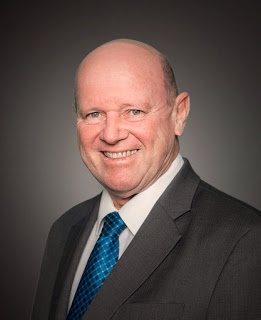
Appeal for ministers of tourism not to be by-standers in assault on travel industry
The Belgium terrorist attack brings Presidents and Heads of States together as they send messages of condolence to the Kingdom of Belgium
Another sad day for the Community of Nations as the world hears of more bomb blasts now labeled Acts of Terror. Below is a message sent by President James Michel of the Seychelles to the Kingdom of Belgium. Similar words were echoed by President Obama of the USA and Prime Minister Cameron of the UK as they made statements to the press in the hours following the Belgium bomb attacks.
Only last week I posted the message from Egypt announcing the closure of some dive centres, decisions that was set to impact on the tourism industry of Egypt and on the country’s economy. The People of Egypt will now suffer because tourism remains the most vulnerable industry and Acts of Terror or bomb attacks creates instability and would-be tourists stay at home.
Just last week I appealed for Ministers of Tourism not to be by-standers in this assault of their industry. The Secretary General of the UNWTO, Mr Taleb Rifai earlier this year rallied some 8o Tourism Ministers and other high officials for a meeting in Madrid to discuss exactly the question of tourism and instability.
The Madrid meeting was the result of an appeal I had personally made to Mr Taleb Rifai.
In Madrid we had all agreed that we needed the main press houses to understand our appeal, but every assault on Member States of UNWTO we continue to see headlines depicting yet “another star is born” . The world needs more than ever before to see political leaders sit with the press to discuss the right to information versus the right to life and economic stability.
I offered Seychelles as the venue for such a meeting under the auspices of the UNWTO and my offer stands today as it did late last year after the Paris bombings.
Alain St.Ange
Minister of Tourism and Culture
Republic of Seychelles
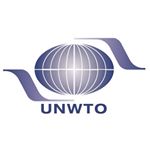
UNWTO strongly condemns the attacks in Brussels
UNWTO is deeply shocked by the tragic attacks perpetrated in Brussels. On behalf of the international tourism community, UNWTO expresses its heartfelt condolences to the families and friends of the victims and to the Belgian people in this difficult moment.
“On the behalf of the international tourism community, UNWTO conveys its heartfelt condolences to the families and friends of the victims and expresses its full solidarity with the people and the Government of Belgium” said UNWTO Secretary-General, Taleb Rifai.
“This is not an attack on Belgium, it is an attack on us all and sadly these tragic events remind us again that we are facing a global threat that needs to be addressed globally” he added.

2050 No-Carbon-Aviation “Moon-shot” for Green Growth
Brussels / Hawaii / Seychelles – In a Keynote address to the CAPA Aviation Summit, Professor Geoffrey Lipman,President of ICTP (International Coalition of Tourism Partners), focused on what he called “the new Global Sustainability Agenda”, the existential nature of Climate Change and a long-term vision of no-carbon aviation.
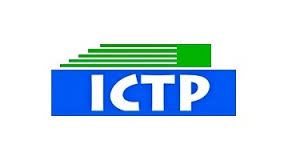 He referenced connected 2015 Heads of State Summits on Development Financing, Sustainable Development Goals (SDG) and Climate, as well as the 2016 Habitat for Humanity meeting, as a new, UN driven, platform for Green Growth. He noted the 2030 date for achievement of the SDG’s with 17 Goals, 169 Targets and 304 indicators on “The Future We Want”, with 2050 as the ultimate deadline for Climate stabilization.
He referenced connected 2015 Heads of State Summits on Development Financing, Sustainable Development Goals (SDG) and Climate, as well as the 2016 Habitat for Humanity meeting, as a new, UN driven, platform for Green Growth. He noted the 2030 date for achievement of the SDG’s with 17 Goals, 169 Targets and 304 indicators on “The Future We Want”, with 2050 as the ultimate deadline for Climate stabilization.
Lipman said that the Paris Cop 21 meeting had seen a landmark recognition by virtually every State to work together to eliminate all greenhouse gases, as well as a new realization that a 2 degrees’ temperature rise was a maximum permissible increase for tolerable lifestyles. National commitments would be reviewed every 5 years, with a view to ratcheting them to higher levels and a figure of less than 1.5 degrees increasingly emerging as a sustainability goal.
Aviation will be integrated into this framework by an agreement at the end of 2016 through a parallel track in the International Civil Aviation Organization (ICAO) and he underscored the responsibility of ICAO to at least meet and ideally surpass the Paris directions. It’s “four pillar strategy”, developed with full engagement of the industry has been established to do that – with a combination of technology, infrastructure, operations and market based, carbon reduction measures.
Lipman said that the current ICAO approach has been carefully developed, with the industry and in synch with the Paris UNFCCC process. Despite some fundamental institutional differences around “differentiated commitments” it is moving forward positively – it is an essential step in establishing a global base to control greenhouse gases from the sector.
The core challenge is that while the Aviation consensus has been building, over the past decade, the climate change goal posts have moved significantly. The life threatening impacts are more widely accepted; ice caps are melting, oceans are warming and greenhouse gases are growing – all at unsustainable levels. There are more extreme storms, floods, fires, droughts, air pollution and migration. In short we face an existential threat in a matter of decades, if we fail to act coherently now.
Against this backdrop the current aviation goals, show a 2050 reduction of carbon to 50% of historic levels, while encompassing continuous high growth and very positive socio- economic development. While this is a major control on carbon growth rates it will still leave significant annual carbon output. Aviation – unlike almost all other sectors – has limited projected alternative fuel potential, so its carbon output, relative to other sectors is escalating. This has been estimated to account for between 10-20% of total 2050 annual global carbon output, compared to 2-3% today – without covering other greenhouse gases. Our sector will be increasingly challenged by this unless we adopt visionary new strategies and focus resources to support this.
Lipman said that we need a 2050 No-Carbon-Aviation “Moon-shot” – accelerating the search for alternative aviation fuels and propulsion. Investment in substitutes for fossil fuel is increasing dramatically – from public research and incentives, to industry re-allocation of resources and impact investment.
The new Bill Gates led “Breakthrough Energy Coalition” is raising billions of dollars for this massive refocus on radical technology innovation. Air Transport fuel must be a priority. It will need new coalitions, organization, metrics and financing. On this later point he stressed that any proceeds from market mechanisms, climate taxes or passenger levies on the sector must form a substantial “Moon-shot” funding base, that could be matched from other breakthrough energy sources.
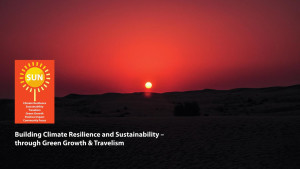 Finally, he called on the entire Travelism sector, to embrace transformation, stressing the fact that we have been prioritized by the G20 and the UN system as a vital employment, trade and development agent, He pledged the support of SUN – a network of prefabricated, solar powered, web connected support centres – as an emerging tool for climate resilience and SDG implementation.
Finally, he called on the entire Travelism sector, to embrace transformation, stressing the fact that we have been prioritized by the G20 and the UN system as a vital employment, trade and development agent, He pledged the support of SUN – a network of prefabricated, solar powered, web connected support centres – as an emerging tool for climate resilience and SDG implementation.
Lipman added that Aviation climate resilience would become a key element of its Green Growth mission.
For more information: www.thesunprogram.com and [email protected]
ICTP: www.ictp.travel

Tourism and Security – the situation needs our leaders attention
Seychelles Minister of Tourism Alain St.Ange added this commentary. “
In Madrid as FITUR 2016 got underway a Tourism Ministerial meeting was called by Tabel Rifai, the Secretary General of the United Nations World Tourism Organisation (UNWTO) to discuss tourism and security. The idea for the Ministers of Tourism to stop being bye-standers anymore when their tourism industry was under assault was an idea floated by Minister Alain St.Ange, the Seychelles Minister responsible for Tourism and Culture in a letter addressed to the Secretary General Of the UNWTO.
But today as we see the continued effects of instability in the tourism industry as a result of insecurity or the perception of insecurity we have to ask if the world of tourism is doing enough to sensitize the press on how the tourism industry is affected when would be terrorists are given airtime to vent their anger at the world and hard working members of the community of nations.
See recent post on Facebook by Werner Gesser
This message just reached me. It’s a letter from a German Sharm el Sheikh attraction operator to his/her clients and friends.
The letter reads:
Sinai Divers will close in Sharm : We are so sorry to inform you, that we will have to close temporarily our diving Center in Sharm el Sheikh as of the 1st of April 2016.
It was an extremely difficult decision for us to take and we hesitated for a long time to make this announcement. During the past three years, the economical situation in Sinai and especially in Sharm el Sheikh has become increasingly difficult. Since the incident last October the situation became even worse with all direct flights being cancelled.
Many Hotels and Diving Centers had to close down in the last few months. We were hopeful that the direct flights from Europe would resume at the end of March, but unfortunately that is not the case. The major tour operators will not operate any flights again before November 2016. Without regular and sufficient bookings it became impossible for us to continue our daily operation.
We will inform you of any changes and should the flights to Sharm restart earlier than expected we will reopen the Center for sure. The Sinai Divers Backpacker Center in Dahab, the Oasis in Marsa Alam and the Center in Aqaba Jordan will continue operating as usual.
Of course we will stay in touch with you over Facebook and keep you updated with airline news, events happening in and around Sharm and post interesting articles and stories.
Rolf & Petra
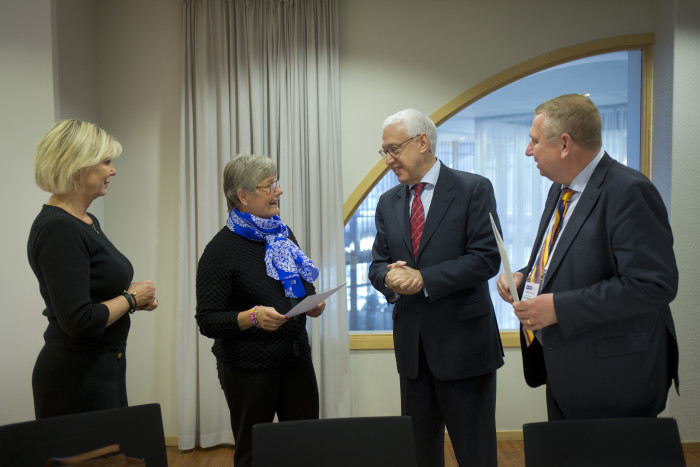
Swedish private sector commits to the UNWTO Global Code of Ethics for Tourism
Visita and Svensk Turism AB have become the latest private sector signatories to the UNWTO Global Code of Ethics. The signature of the commitment to the Code took place on the occasion of Sweden’s Hospitality Industry Congress, held in Gothenburg (17 March 2016).
By adhering to the Code, the private sector signatories commit to respect its principles; to promote the Code among its partners, providers, staff and clients, making sure that its provisions are known and respected as far and wide as possible; and to report to the World Committee on Tourism Ethics on the measures taken to implement the Code.
As stated by Márcio Favilla, UNWTO Executive Director for Competitiveness, External Relations and Partnerships, on the occasion of the signature “tourism’s exponential growth in recent years comes with increased responsibility for all and this is why today’s commitment is so important; the UNWTO Global Code of Ethics constitutes the most efficient tool to channel corporate responsibility commitments towards our society and communities.”
“Travel to Sweden is becoming more and more popular among tourists from Europe as well as for those traveling from long-haul markets such as Japan, China, India, Russia and the USA. Cooperation with UNWTO highlights Sweden’s commitment to being a responsible, sustainable and attractive destination”, said Maud Olofsson President of Visita. Eva Östling, CEO of Visita, added that “tourism is one of Sweden’s most important industries with an export value of 97 billion SEK. But the potential is much higher. The goal is to double this in ten years”.
Magnus Nilsson, President of Svenk Turism said “now we’ll insert the UNWTO Global Code of Ethics for Tourism in the Swedish tourist industry’s national strategy. With a focus on sustainability, we will work towards ensuring that by 2020 Sweden is the natural destination for the global traveler”.
The UNWTO Global Code of Ethics for Tourism is a comprehensive set of principles designed to guide key-players in tourism development. Addressed to governments, the travel industry, communities and tourists alike, it aims to help maximise the sector’s benefits while minimising its potentially negative impact on the environment, cultural heritage and societies across the globe. Adopted in 1999 by the General Assembly of the World Tourism Organization it was acknowledged by the United Nations in 2001.
The relevance that the private sector can have in promoting a more responsible tourism sector, lead UNWTO to develop since 2011 the Private Sector Commitment to the Code. As of January 2016, 451companies and associations from 64 countries –from airlines and hotels, to tour operators and associations– have joined the commitment to uphold ethical standards and ensure the implementation of the Code in their operations.
UNWTO deeply saddened by FlyDubai crash
MADRID, Spain – UNWTO is deeply saddened by the news of the accident of Flydubai flight FZ981 in the southern Russian city of Rostov-on-Don. On behalf of the international tourism community, UNWTO expresses its sympathies and condolences to the families and friends of the victims.
“It was with great sorrow that we heard the news of this tragedy and express our heartfelt solidarity with the families and friends of the passengers at this most difficult time”, said UNWTO Secretary-General, Taleb Rifa
